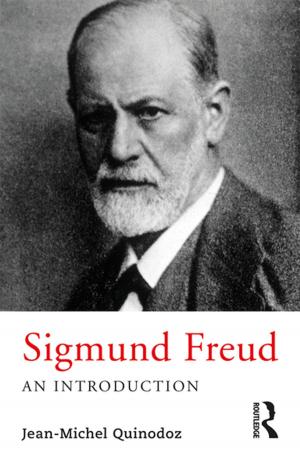The Incredible Shrinking Mind
What Happens When The Human Equation Gets Lost
Nonfiction, Health & Well Being, Psychology, Mental Health| Author: | Gerald Alper | ISBN: | 9780429921063 |
| Publisher: | Taylor and Francis | Publication: | May 15, 2018 |
| Imprint: | Routledge | Language: | English |
| Author: | Gerald Alper |
| ISBN: | 9780429921063 |
| Publisher: | Taylor and Francis |
| Publication: | May 15, 2018 |
| Imprint: | Routledge |
| Language: | English |
Examining the assertions and fallacies of the theories conceived (or contrived) by some of today's most brilliant scientists and thinkers (including Dan Ariely, John Barrow, Pascal Boyer, Frank Close, Nicholas Humphrey, Richard Dawkins, Stanley Milgram, Oliver Sacks, and Carl Sagan), the author explores why these varied attempts at joining the world of experience and the world of measurement so regularly fail, how consciousness explained is really a concentrated effort to explain away the subjective phenomena of consciousness. From the psychic rat to the gorilla in the room, from British double-agent Kim Philby to comedian Steve Martin, The Incredible Shrinking Mind not only offers a provocative and entertaining critique, but also a profound and practical solution: the psychodynamic approach, which takes seriously the question of meaning and not solely observable behaviour, which combines the quantitative and the experimental with the human and multidimensional, which seeks to understand not just how but why.
Examining the assertions and fallacies of the theories conceived (or contrived) by some of today's most brilliant scientists and thinkers (including Dan Ariely, John Barrow, Pascal Boyer, Frank Close, Nicholas Humphrey, Richard Dawkins, Stanley Milgram, Oliver Sacks, and Carl Sagan), the author explores why these varied attempts at joining the world of experience and the world of measurement so regularly fail, how consciousness explained is really a concentrated effort to explain away the subjective phenomena of consciousness. From the psychic rat to the gorilla in the room, from British double-agent Kim Philby to comedian Steve Martin, The Incredible Shrinking Mind not only offers a provocative and entertaining critique, but also a profound and practical solution: the psychodynamic approach, which takes seriously the question of meaning and not solely observable behaviour, which combines the quantitative and the experimental with the human and multidimensional, which seeks to understand not just how but why.















